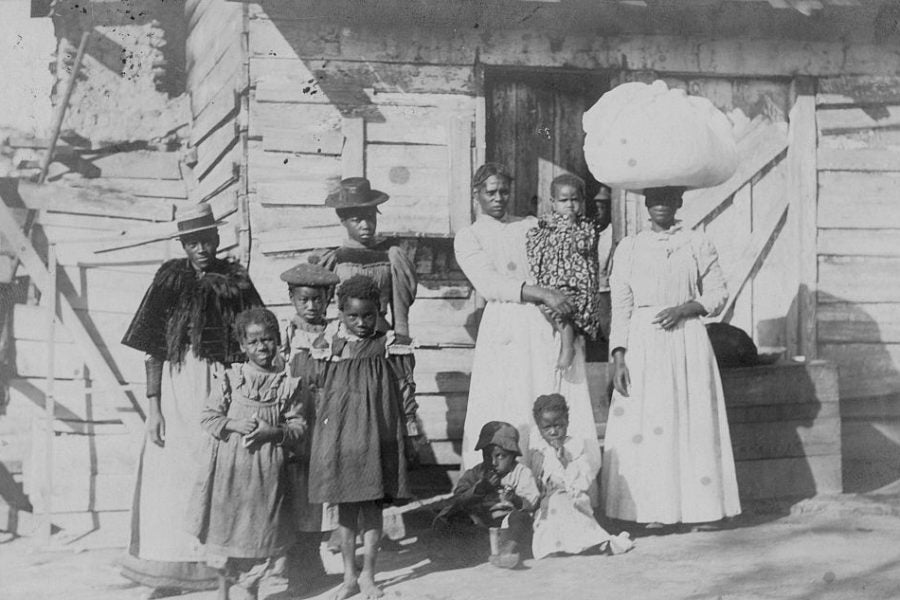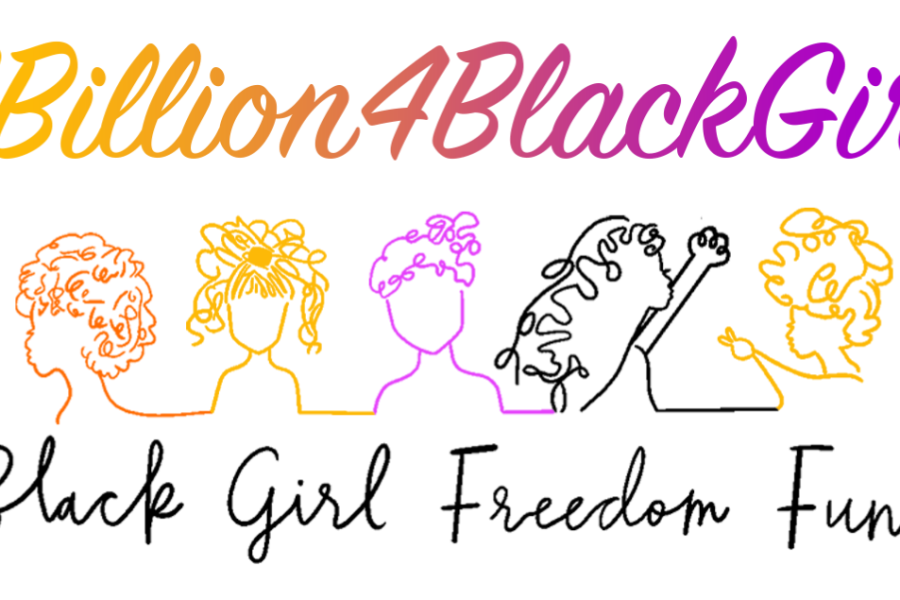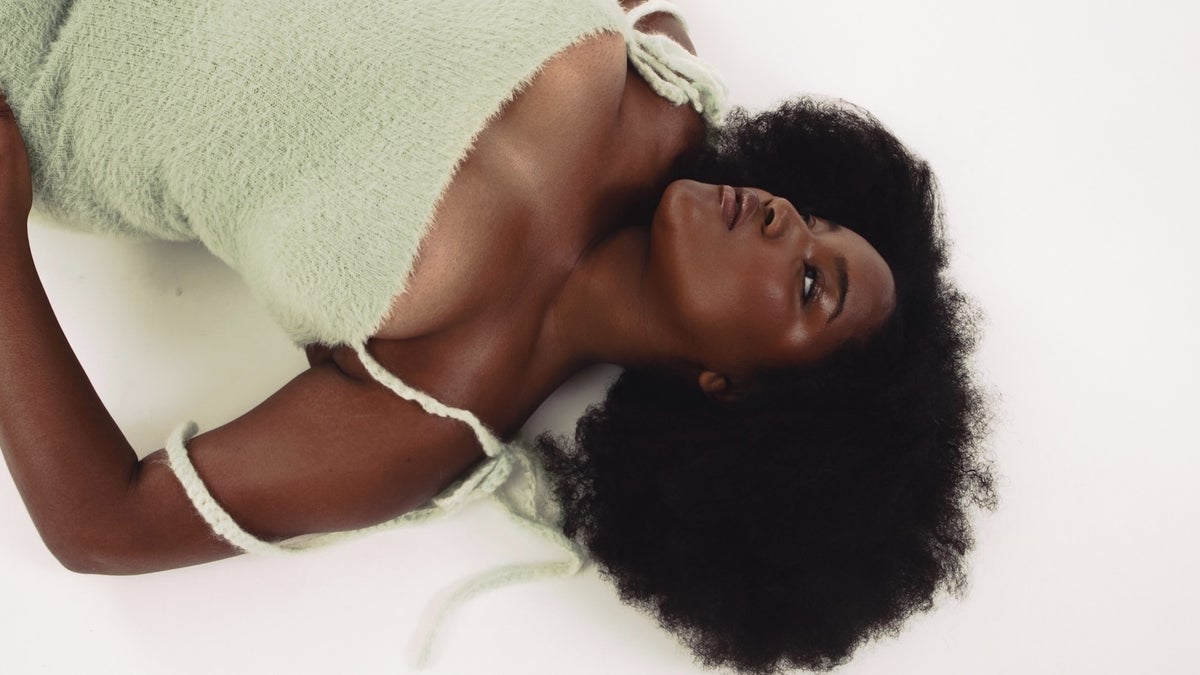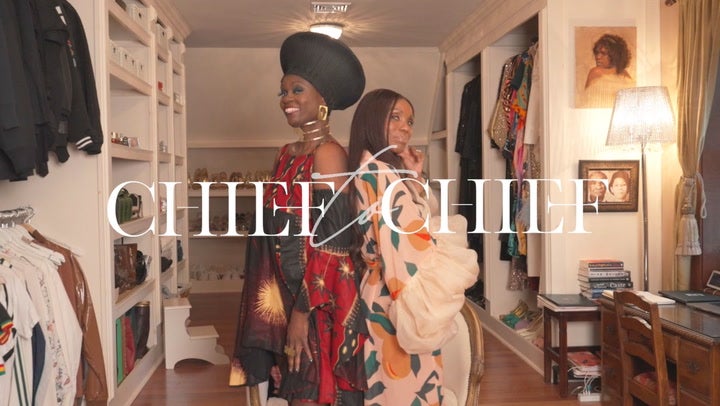
A multi-hyphenate creative. The daughter of Jamie Foxx. Corinne Foxx is many things, including an endometriosis survivor. An ambassador for the Endometriosis Foundation of America and Sollis Health, she doesn’t shy away from being candid about her uphill battle with the condition. Since her diagnosis in 2018, Foxx has traveled a long road of acceptance, care, and advocacy. She most recently partnered with Sollis Health for their new “Warriors” campaign.
The awareness campaign highlights the private journeys of people who experience chronic and invisible health conditions. The hope is to pave a new path in body diversity and reverse the shame, stigma, and silencing felt by 60% of people living with chronic illness, according to the CDC. This will encourage others to share their stories about challenges with their invisible illness, shift the conversation and narrative around stigmas, and inspire others to get the help they need.
According to the Mayo Clinic, endometriosis is a painful disorder in which tissues (the ones that usually line the inside of your uterus) of the endometrium grow outside your uterus. The invisible illness most commonly involves your ovaries, fallopian tubes, and the tissue lining your pelvis. When endometriosis involves the ovaries, cysts called endometriomas can form. Surrounding tissue can become irritated, eventually developing scar tissue and adhesions — bands of fibrous tissue that can cause pelvic tissues and organs to stick to each other.
The pain can intensify during menstrual periods, insidiously duping women into thinking it may simply be from cramps and also leaving many confused as to why the pain is happening altogether, which Foxx experienced.
While there hasn’t been a cure established yet for endometriosis, several options are available to provide relief from symptoms for patients, like conservative surgery. According to the Endometriosis Foundation of America, conservative surgery is an endometriosis technique most often performed when endometriosis lesions can be recognized and removed, leaving healthy organ tissue intact. While there are many different techniques of conservative surgery, laparoscopic excision surgery is the gold standard of treatment for endometriosis and is preferred.
ESSENCE chatted with Foxx to better understand her battle with this condition, why she’s advocating for others with the invisible illness, the importance of Black women feeling seen and heard by physicians, and the necessary treatment options to help ease the symptoms of endometriosis.
ESSENCE: Can you walk our readers through your diagnosis journey?
Corinne Foxx: I started to experience symptoms of endometriosis, probably when I started menstruating, but I wasn’t aware of the even worse symptoms of endometriosis. From the ages of 13-24, my symptoms just kept getting worse. So I had painful periods, debilitating pain, so much so that I couldn’t go to work. I couldn’t go to school. I thought that was normal from everything I had been taught about your menstrual cycle. I thought, you know, this is what having a period is like. I wasn’t aware that I was experiencing the textbook symptoms of endometriosis.
It wasn’t until I was on the bathroom floor in the fetal position that one of my roommates told me, “You need to see somebody. This isn’t normal. This isn’t how you should be feeling.” And that was a shock to me because I thought what I was experiencing was normal. And once I started my diagnosis journey, I went to five or six different doctors before I even heard the word endometriosis. And in the process, I had been told I had various ailments, including bladder cancer, something no one ever wants to hear at a doctor’s office. When I did get my endometriosis diagnosis, there was no clear path for me to get treatment. I had to do my research, advocate for myself and demand to keep being seen. And I feel so blessed to have found the surgeon who performed my endometriosis surgery. But that was an extreme privilege and not everyone has access to a doctor as amazing as her. After I healed, I reached out to the Endometriosis Foundation of America and said I wanted to share my story. I tried to get more information on endometriosis out into the world because I wanted to make someone else’s diagnosis journey more manageable than mine. That’s been the last two or three years of my life, working with the Endometriosis Foundation of America. It’s been so rewarding.
Unfortunately, we’re seeing a common thread with Black women not feeling supported by healthcare professionals. Did you feel like you were struggling to have your voice heard when trying to find answers about your health?
I did not feel like I was being taken seriously, like I was being believed. When you’re in so much pain, you know something’s wrong. You look fine from the outside when you have an invisible illness. You couldn’t tell that I was sick. So, I had to advocate for myself. As a woman of color, it’s harder to have our voices heard and to be believed when talking about something wrong that’s going on in our bodies or the world, too.
So when you were diagnosed, how did you take it?
My diagnosis was a traumatic experience. In my fifth doctor’s office, I saw a male doctor who had already made inappropriate comments. I already didn’t feel very comfortable, and he sort of blurted out the word “endometriosis” without giving me any context as to what that meant. And my only familiarity with it was from Lena Dunham, who has spoken about her endometriosis journey. She had a hysterectomy. So I assumed that endemic endometriosis meant that I couldn’t have children and I just sobbed. I was so emotional. The doctor uses best practices. He didn’t provide me with all the resources I needed, so I took it into my own hands to do that research.
It wasn’t until later I looked into my family history and realized my grandmother had endometriosis, my aunt had endometriosis, and they all had children and were healthy. I advocate for also doing your research within your family and then having these conversations of, “Hey, this is something that you might have experienced” because that would have made my diagnosis journey a lot easier.
I know this was hard for you to take with your diagnosis, but how did your family take it, specifically your dad? I know you all are close.
I’m very close with my family, but this is something that I didn’t tell my dad about until I had scheduled my surgery. When you’re dealing with reproductive issues, it’s very intimate. There can be a lot of shame around these symptoms. It’s a sensitive subject. Also, again, that goes back to the lack of research. I wasn’t 100% sure I had endometriosis until I had the surgery. When I did tell my dad, of course, he was so supportive. He was holding my hand right as I went off to surgery. Both my parents and my entire family have been instrumental in my healing. I have two sisters that are 14 and 15 years old. I’ve been very candid with them about my experience so that if they experience any pain in the future, they know what to do, they know where to go, and I can kind of guide the way for them.
So, how do you cope with your condition every day? I imagine it’s difficult.
I got surgery in 2018, as surgery is the gold standard of treatment for endometriosis. I had laparoscopic excision surgery to remove the endometrial tissue from my body, which has immensely changed my life. I no longer live in debilitating pain. And from then on, I’ve just maintained a healthy way of life. A healthy diet and exercise stress management are huge for the condition because it’s an inflammatory disease. So when you’re stressed, your body is more inflamed, and therefore your symptoms will worsen. Meditation practice is critical for me to sleep. But the way to treat endometriosis is to have surgery.
Why did you partner with Sollis Health to bring more awareness to endometriosis? I know you’re excited about your advocacy work.
My advocacy work is some of my most important work. I feel like I’ve been given this incredibly privileged, blessed life. It’s my duty to share my story with others to help them find the right avenues for whatever they’re struggling with. I’m also an advocate for mental health. I also work closely with The National Alliance to speak about mental illness. I’ve shared my story with anxiety, and now I partner with the Endometriosis Foundation of America, and I’m sharing my story with endometriosis. I want to make someone else’s journey not as difficult as mine.
Women of color aren’t being targeted with this message enough. To see somebody of color who’s out there talking about endometriosis, I hope someone can say, “Hey, she looks like me, she’s going through the same thing that I am, and maybe I should be going to a doctor. Maybe I need to advocate for myself and get a second opinion.”
Another message I want to convey is if you see a doctor and they tell you what you’re experiencing is normal, but you don’t feel like it’s normal, get a second opinion and keep advocating to be seen.
How has this diagnosis changed you?
I didn’t believe in myself as much before my diagnosis compared to now. Endometriosis has bled into many different areas of my life, including my professional life, being a producer, and advocating for the things I believe in and what I believe to be right or wrong.







